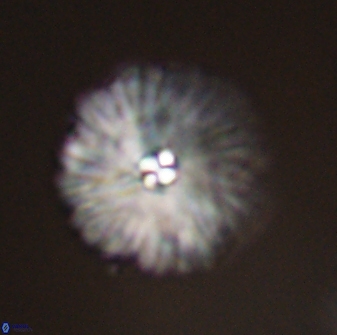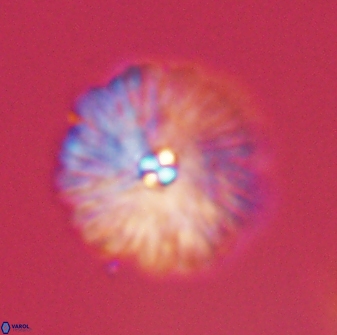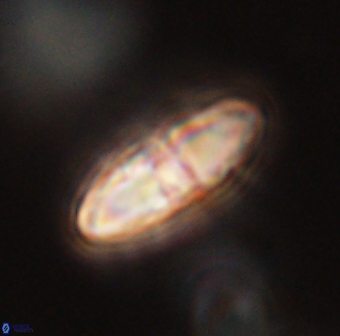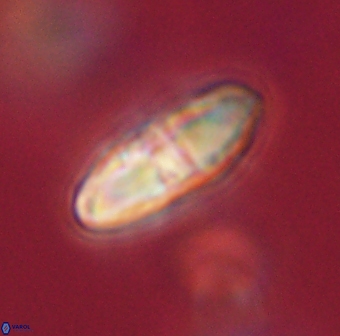Davidbukrya perchnielseniae
Davidbukrya perchnielseniae Varol, 2023
A large (8.0–12.0 μm) circular species of Davidbukrya with a non-birefringent lenticular disc and a solid birefringent tube cycle.
In honour of renowned nannofossil specialist Dr K. Perch-Nielsen von Salis, Switzerland.
The diameter of the disc: 9.77 μm (measured in phase-contrast), the thickness of the disc: 3.80 μm, the diameter of the tube cycle: 1.96 μm (measured in plan view).
The number of segments constructing the disc is between 20 and 40, and they are joined along most of their length. In the side view, the relatively narrow tube cycle is often parallel-sided but rarely widens towards the proximal/more concave side. There may be a central depression at both ends of the tube cycle.
In cross-polarised light, the inclined extinction lines are dextrogyre on the distal side of the disc (Plate 23, Figs. 9–10, 21–22 in Varol, 2023). In contrast, the inclined extinction lines are laevogyre on the proximal side of the disc (Plate 23, Figs. 11–12, 23–24 in Varol, 2023). On the tube cycle, the inclined extinction lines are laevogyre on the distal side (Plate 23, Figs. 9–10, 21–22 in Varol, 2023), but dextrogyre on the proximal side (Plate 23, Figs. 11–12, 23–24 in Varol, 2023). When using a gypsum plate, the blue sectors on the tube cycle are aligned to the horizontal axis on the distal side (Pl 23, Figs. 10, 22 in Varol, 2023). In contrast, the blue sectors in the tube cycle are aligned with the vertical axis on the proximal side (Pl 23, Figs. 12, 24 in Varol, 2023). The entire species appears birefringent in the side view.
Davidbukrya may be further subdivided utilising the number of segments on the disc. Davidbukrya perchnielseniae is distinguished from Davidbukrya claracirculus by having a solid tube cycle. Davidbukrya perchnielseniae differs from Davidbukrya clemencesalleyae by being much smaller than 14.0μm and lacking the bulging of the disc around the narrow tube cycle. The extinction lines of the tube cycle and shield are in opposite directions in Davidbukrya perchnielseniae.
Varol, O. 2023. New paleocene calcareous nannofossils: Carlamuelleria, Davidbukrya, Mauriceblackia, Noelia and Senelia. Marine Micropaleontology. 180: 1-41.



